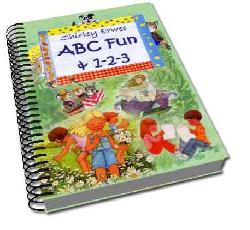| Back to Back Issues Page |
 |
|
Nurturing the Art of Narration May 12, 2016 |
Nurturing the Art of NarrationWhile many homeschooling parents recognise that testing and examinations are very limited in what they measure, they often wonder how else to assess their children’s learning. Narration – the art of telling back – is a simple, natural and easy way for parents to assess their children in a very stress-free and informal way. It has been said that
Encouraging your children to simply tell you what they have read, watched, done or learned is a highly effective learning activity.
When children start to narrate, young children will initially just tell you some of the facts, possibly only
the climax of a story or the ending. There may be little detail and some of the detail might even be wrong. As children mature, they may start to make connections between the facts and add background information that they have already learned elsewhere. Later they will start to express opinions and even support their opinions while retelling the facts. Mature narrators will start to recognise analogies and life lessons from what they are reading. 6 Ways to Get Your Children to Narrate
Developmental ActivitiesFine motor skills Create opportunities for your child to draw and express herself through pictures. Ask her to draw a picture for a grandparent of friend or a card for a special occasion. You could also draw messages for your child such as reminders to brush her hair, brush her teeth, pick up her toys, wash hands before meals etc. so that she discovers that messages can be communicated on paper.
Gross motor skills Play this game with your child: Tell her to lie on her back on the floor and pull her legs up to her chest and hold them with her arms, so that she is huddled in a ball. Tell her she is an egg and you are an egg-eating monster. When you come near her, she must straighten out her legs and stretch her arms out above her head and in so-doing turn herself into a stick. When you have passed by she must turn back into
an egg, until you come near again! Make scary sound effects and use your imagination to make it fun!
Mathematical skills
Let your child play with two plastic tumblers or jugs in the bath. Fill them with different amounts of water and talk about concepts like, full, fuller, empty, heavy, heavier, light, lighter, little and much heavier etc.
Auditory perception Make up rhyming riddles for your child to complete, like these: I can think of something that rhymes with make When it’s a birthday we bake a …… (cake) I can think of something that rhymes with sky When you can’t reach up to something it is too ……..( (high) I can think of something that rhymes with boy A thing a child plays with is called a ……..( (toy) I can think of something that rhymes with fox The thing we buy cereal in is called a ……. (box) Perhaps your child might
like to ask you some riddles too!
Language and thinking Begin a habit of reading good literature aloud to your child regularly and let her narrate back to you afterwards. As avid fans of Charlotte Mason, I believe that children who practice the skill of narration, from living books, are not only able to repeat facts, but they learn to process and assimilate information and absorb it into their memories, making it a part of their unique knowledge of the world. “But one who tries this method on himself will find that in the act of narrating every power of his mind comes into play.” (Charlotte Mason Original Homeschooling Series, Volume 1, Home Education.) Faith building Teach your child some easy kids’ praise songs or listen to a kids praise CD or cassette together and learn some new ones! Regards Designed for ages 3-6 years, ABC Fun & 1-2-3 is a story-based preschool curriculum with printable alphabet worksheets, weekly lesson plans, easy kids crafts, nursery rhymes and more - all to make learning the ABC fun! |
| Back to Back Issues Page |
